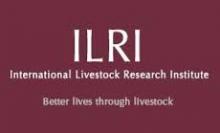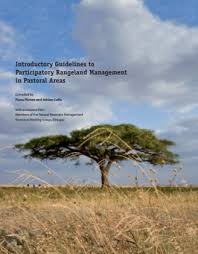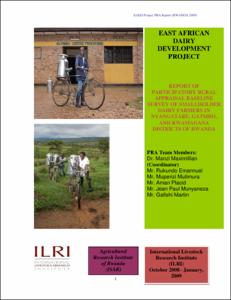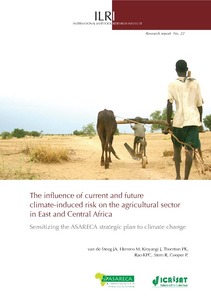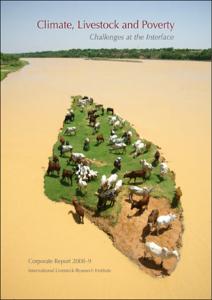Location
Vision, mission and strategy
ILRI's strategy 2013-2022 was approved in December 2012. It emerged from a wide processof consultation and engagement.
ILRI envisions... a world where all people have access to enough food and livelihood options to fulfil their potential.
ILRI’s mission is... to improve food and nutritional security and to reduce poverty in developing countries through research for efficient, safe and sustainable use of livestock—ensuring better lives through livestock.
ILRI’s three strategic objectives are:
- with partners, to develop, test, adapt and promote science-based practices that—being sustainable and scalable—achieve better lives through livestock.
- with partners,to provide compelling scientific evidence in ways that persuade decision-makers—from farms to boardrooms and parliaments—that smarter policies and bigger livestock investments can deliver significant socio-economic, health and environmental dividends to both poor nations and households.
- with partners,to increase capacity among ILRI’s key stakeholders to make better use of livestock science and investments for better lives through livestock.
This is ILRI’s second ten-year strategy. It incorporates a number of changes, many based on learning from the previous strategy (2000–2010, initially produced in 2000 and modified in 2002), an interim strategy (2011–2012) and an assessment of the external and internal environments in which the institute operates.
Members:
Resources
Displaying 711 - 715 of 1152Introductory Guidelines to Participatory Rangeland Management in Pastoral Areas
These guidelines introduce and promote the essential elements of participatory rangeland management (PRM). Based upon the successful experiences of participatory forest management, the guidelines provide a process following three stages of investigation, negotiation and implementation. The sequential steps of this process lead to the development of a rangeland management plan and a legally binding rangeland management agreement between a local rangeland management institution and the appropriate local government office.
Report of participatory rural appraisal baseline survey of smallholder dairy farmers in Nyangatare, Gatsibo and Rwamagana Districts of Rwanda
The influence of current and future climate-induced risk on the agricultural sector in East and Central Africa: Sensitizing the ASARECA strategic plan to climate change
Rainfed agriculture is and will remain the dominant source of staple food production for the majority of the rural poor in Eastern and Central Africa (ECA). It is clear that larger investments in agriculture by a broad range of stakeholders will be required if this sector is to meet the food
ILRI Corporate Report 2008-9. Climate, livestock and poverty: Challenges at the interface
Worldwide, agriculture both contributes to and is threatened by climate change. This corporate report focuses on the millions of people in developing countries for whom climate change represents a direct threat to their food security and livestock-based livelihoods.

